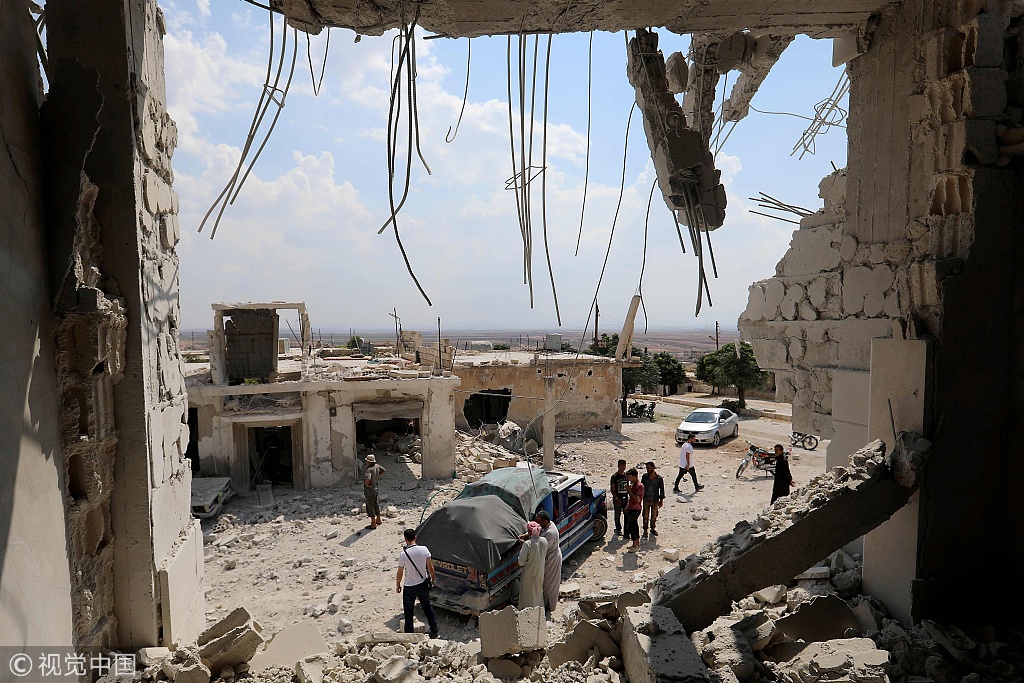Syria and Russia restart airstrikes in Idlib 'prelude'


DAMASCUS - Syria and Russia resumed airstrikes in Idlib and Hama on Sunday, as Damascus stepped up its assault on the rebels' last major stronghold after a Russian-Iranian-Turkish summit failed to agree a cease-fire.
The Russian warplanes and Syrian helicopters carried out dozens of airstrikes on rebel-held towns in the northern countryside of Hama Province in central Syria and the nearby southern countryside of Idlib.
The Syrian Observatory for Human Rights said the rebels of the Turkey-backed al-Jabha al-Wataniya lil-Tahrir, or the National Front for Liberation, also attacked a position of the Syrian army in the northern countryside of Hama.
The London-based watchdog said 1,060 airstrikes and ground shelling have targeted rebel-held areas in Idlib and the nearby countryside of Hama over the past 72 hours.
Meanwhile, Syrian state news agency SANA said the government forces carried out "intensive shelling" on positions of the al-Qaida-linked al-Nusra Front in the northern countryside of Hama.
The escalation is seen as a prelude to the anticipated government military campaign on Idlib, the last major rebel stronghold in Syria.
The Syrian army, backed by Russia and Iran, has been pushing for an assault on Idlib to eliminate the rebels in the province, which would mean a practical end to the seven-year-long insurgency in the country.
No tangible results
On Friday, the leaders of Iran, Turkey, and Russia met in Iran to discuss the situation in Idlib, yet without achieving tangible results amid differences.
Iran and Russia supported the Syrian operation in Idlib, while Turkey, a backer of an array of rebels in Idlib, pushed for a cease-fire.
Around 3 million people are living in Idlib, including those evacuated from many other areas during the surrender of the rebels.
Also on Sunday, Russia's military said that two US F-15 fighter jets dropped phosphorus bombs over Syria's Deir al-Zor province on Saturday, the TASS and RIA news agencies reported, an allegation the United States denied.
"At this time, we have not received any reports of any use of white phosphorous," said Commander Sean Robertson. "None of the military units in the area are even equipped with white phosphorous munitions of any kind."
Use of white phosphorous is banned under the Geneva Convention for use against civilians and against legitimate military targets in areas with a major civilian population.
Meanwhile, US Vice-President Mike Pence said that the US will take swift and decisive action against any use of chemical weapons in the Syrian province of Idlib.
Speaking in an interview with Fox News, Pence said that "what's different with President (Donald) Trump from president (Barack) Obama is this president drew a red line and enforced it on chemical weapons".
However, he refused to say whether the US will intervene militarily if the Syrian government forces use conventional weapons in its battle.
Xinhua - AFP - Reuters

































